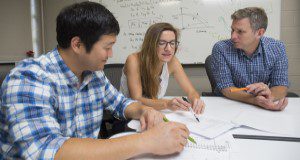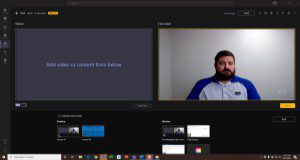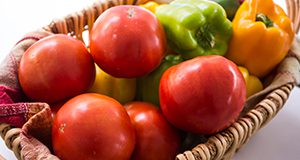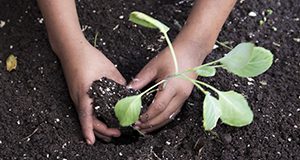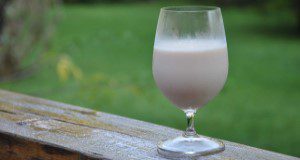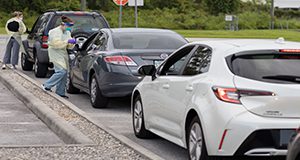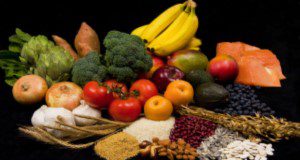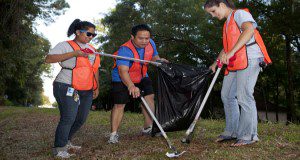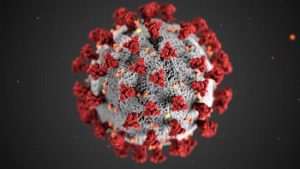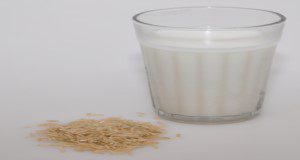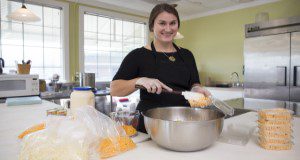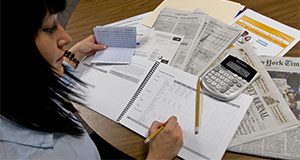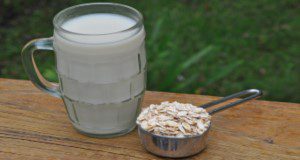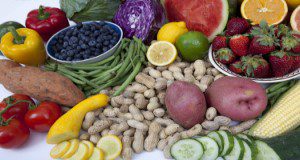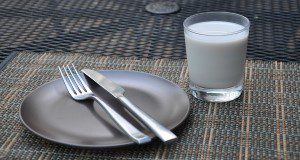Regardless of workspace or class setting, group work has gotten a reputation for being less than pleasant. However, when individuals have the opportunity to prepare for group work via understanding their personal strengths, expectations, and perspectives, the not-so-popular group work can often turn into pleasant, productive, and collaborative engagement. Because group dynamics shift and vary from group to group, there is a constant learning opportunity to understand how to work in groups successfully. This new 2-page publication of the UF/IFAS Department of Agricultural Education and Communication will identify simple yet effective strategies that can serve as foundational building blocks whenever preparing oneself or others for group work. Written by Cecilia E. Suarez and Jarred A. Shellhouse.
https://edis.ifas.ufl.edu/wc389
Category: Families & Consumers
Microsoft Teams for CEU and Training Delivery
The Microsoft Teams collaboration platform is popular among UF/IFAS faculty, researchers, Extension agents, and staff for its ease of use and utility for internal and external communication, collaboration, and meetings. The Teams webinar feature called live events can be used for a more controlled experience for large meetings, events, or CEU delivery. This new 5-page article will discuss the benefits and possible limitations of this service, specifically for offering online CEU material that meets Florida Department of Agriculture and Consumer Services (FDACS) guidelines for such trainings. Written by Brett W. Bultemeier and Joe Gasper and published by the UF/IFAS Pesticide Information Office.
https://edis.ifas.ufl.edu/pi290
The Feasibility of Farmer-Led Cooperatives for Southwest Florida Farm to School Procurement
Florida's K–12 schools provide a potential opportunity to increase market channel options for small- and mid-sized diversified farms, but processing, storage, and distribution resources are extremely limited for smaller producers. This 9-page document serves as a model and case study with steps for producers and other stakeholders to conduct a feasibility study before forming a cooperative to sell local fruits and vegetables to schools and other institutional food-service outlets. Written by Jonathan Adam Watson, Danielle D. Treadwell, Catherine Campbell, and Ray Bucklin, and published by the UF/IFAS Department of Agricultural and Biological Engineering, March 2021.
https://edis.ifas.ufl.edu/ae555
Costs and Benefits of Vegetable Gardening
Home vegetable gardening has numerous documented benefits, including savings on the family food bill. How can a gardener calculate cost savings from a garden? Which vegetables cost more to grow in the garden and which cost less? This 10-page fact sheet written by Kevin Athearn, Hannah Wooten, Liz Felter, Catherine G. Campbell, Jessica M. Ryals, Matthew C. Lollar, Juanita Popenoe, Lorna Bravo, LuAnn Duncan, Christa Court, and Wendy Wilber and published by the UF/IFAS Food and Resource Economics Department helps home gardeners estimate the costs and cost savings from vegetable gardening.
https://edis.ifas.ufl.edu/fe1092
Leading Difficult Conversations Series #3: Creating a Safe Conversation Environment
This publication series is intended for leaders who bear the responsibility of having difficult conversations as part of their professional responsibilities. Earlier in this publication series, the foundational principles of preparing for difficult conversations were established: (1) defining the issue and (2) determining your motive for the conversation. Once those principles are put into practice, the next phase of having a difficult conversation is creating a safe environment for the conversation. Components of creating a safe environment include recognizing a conversation’s content and conditions, understanding the threats to a safe environment, and utilizing skills to overcome threats to restore safety. This new 3-page publication of the UF/IFAS Department of Agricultural Education and Communication was written by Christy Chiarelli.
https://edis.ifas.ufl.edu/wc384
Leches a base de plantas: Soya
La leche de soja es una leche vegetal elaborada a partir de semillas de soja (Glicine max). A diferencia de algunas de las leches de origen vegetal que se comercializan recientemente, la leche de soja tiene una larga historia como bebida en todo el mundo y se comercializa en los Estados Unidos durante más de un siglo. Si se ha preguntado cómo se compara con la leche de vaca, esta publicación describe los ingredientes y el contenido de nutrientes de la leche de soja producida comercialmente y sus posibles beneficios y riesgos para la salud.
This new 6-page publication of the UF/IFAS Food Science and Human Nutrition Department is the Spanish translation of FSHN20-54/FS422, Plant-Based Milks: Soy, written by Jessica Goldberg, Daniela Rivero-Mendoza, and Wendy J. Dahl.
https://edis.ifas.ufl.edu/fs430
Purchasing Car Insurance: What College Students Should Know
Florida law requires drivers to have car insurance that provides financial protection in the event of a mishap. This 4-page publication provides an overview of auto insurance requirements in Florida as well as a glossary of car insurance terms for college students. Written by Nicholas Horvath, Jorge Ruiz-Menjivar, and Sarah M. Ellis, and published by the UF/IFAS Department of Family, Youth and Community Sciences, January 2021.
https://edis.ifas.ufl.edu/fy1493
Chronic Kidney Disease and Nutrition
Chronic kidney disease (CKD) is considered a public health issue within the United States because an estimated 37 million adults or 15% of the population have this disease. CKD is a disease characterized by the gradual loss of kidney function. Early prevention techniques such as a well-balanced diet reduce the progression of this disease. The purpose of this new 6-page article is to provide an overview of CKD and nutritional considerations. Written by Sofia Acevedo, Danielle Aycart, and Jeanette Andrade, and published by the UF/IFAS Food Science and Human Nutrition Department.
https://edis.ifas.ufl.edu/fs429
Fundamentals of Volunteer Orientation
This new 4-page fact sheet is intended to assist volunteer managers when creating volunteer orientations for their new volunteers. Volunteer training and orientation is a critical component which should promote volunteers’ understanding of the role they hold within organizations. Leaders of volunteer organizations must ensure their organizations have adequately prepared volunteers to carry out the organization’s mission. Last, volunteer leaders should incorporate the cause, system, and social orientation components to effectively create an orientation focused on providing the appropriate onboarding of their most valuable asset: volunteers. Written by Olivia Caillouet, Jessica Williams, Shelby Atwood, and Matt Benge, and published by the UF/IFAS Department of Agricultural Education and Communication.
https://edis.ifas.ufl.edu/wc382
Manejo del COVID-19: mejores prácticas para agronegocios
This is the Spanish language translation of FSHN20-25/FS366, Handling COVID-19: Best Practices for Agribusiness. This material is adapted from the version published at https://foodsafety.ces.ncsu.edu/covid-19-resources/. Written by Tom Maddox and Laurel Dunn (University of Georgia) and published by the UF/IFAS Food Science and Human Nutrition Department.
https://edis.ifas.ufl.edu/fs395
Manejo del COVID-19: Granjas de frutas y verduras, y empacadoras
This is the Spanish language translation of FSHN20-25/FS366, Handling COVID-19: Produce Farms and Packinghouses. This material is adapted from the version published at https://foodsafety.ces.ncsu.edu/covid-19-resources/. Written by Laurel Dunn and published by the UF/IFAS Food Science and Human Nutrition Department.
https://edis.ifas.ufl.edu/fs394
Leches a base de plantas: Arroz
La leche de arroz es una bebida no láctea a base de plantas elaborada principalmente con arroz molido y agua. Se comercializa como un sustituto vegano de la leche de vaca, fácil de digerir y apto para personas alérgicas. Al igual que otras bebidas a base de plantas, la leche de arroz generalmente tiene un color blanco opaco o beige y una textura cremosa que se asemeja a la leche de vaca. Esta publicación describe cómo se elabora la leche de arroz, sus ingredientes y perfil de nutrientes, y los posibles beneficios para la salud y riesgos del consumo.
This new 5-page publication of the UF/IFAS Food Science and Human Nutrition Department is the Spanish translation of FSHN20-50/FS412, Plant-Based Milks: Rice, written by Meagan Lamothe, Daniela Rivero-Mendoza, and Wendy J. Dahl.
https://edis.ifas.ufl.edu/fs428
Leading Difficult Conversations Series #2: Preparing for the Conversation
This publication series is designed to equip leaders with strategies and tactics to use when they are tasked with having a difficult conversation. When approaching difficult conversations, leaders are encouraged to examine themselves prior to engaging in a hard conversation, because ultimately, a person can only change themself. In this series, the first topic to explore is preparing for the conversation. The components of proper preparation include clearly defining the issue and considering the motive behind the conversation. This new 3-page publication of the Department of Agricultural Education and Communication was written by Christy Chiarelli.
https://edis.ifas.ufl.edu/wc378
Cottage Food in Florida
In Florida, individuals can manufacture, sell, and store specific types of cottage food products in their primary home kitchen in accordance with Florida Statute 500.80. This new 3-page fact sheet, written by Sarah M. Ellis, Jennifer Hagen, and Matthew D. Krug and published by the UF/IFAS Food Science and Human Nutrition Department, provides basic information and resources for clientele who are interested in starting a food-based business out of their home kitchen. This document is one in a “Florida Food Entrepreneur” series, which seeks to assist new and established food entrepreneurs by providing information on topics relevant to food-based businesses.
https://edis.ifas.ufl.edu/fs425
Fondos de Inversion: Un Glosario para Principiantes
El mejor momento para comenzar a invertir o ahorrar es ayer, ya sea para la jubilación, para enviar a su hijo o hija a la Universidad o para el pago inicial de una casa. Para poder tomar una decisión acertada sobre que vehículos financieros escoger para una cartera de inversiones o plan, es primero fundamental conocer las opciones disponibles en el mercado y entender los mecanismos y principios detrás de cada uno de estos vehículos de inversión. Hay libros enteros escritos sobre estos temas, pero con el propósito de este artículo es proporcionar un glosario breve, pero completo de los fondos principales de inversión financiera. This 3-page document is the Spanish version of FCS3352, Major Asset Classes: A Brief Glossary. Written by Jorge Ruiz-Menjivar, Nelly Nelson, and Jarrett Tsai, and published by the UF/IFAS Department of Family, Youth and Community Sciences, December 2020.
https://edis.ifas.ufl.edu/fy1494
Leches a base de plantas: Avena
La leche de avena es una de las alternativas lácteas más recientes en llegar a los estantes de los supermercados, y actualmente hay varias marcas disponibles en los Estados Unidos. La leche de avena está hecha de avena en grano. Esta publicación describe cómo se elabora la leche de avena, sus ingredientes y perfil de nutrientes, y los posibles beneficios y riesgos para la salud del consumo.
This new 4-page publication of the UF/IFAS Food Science and Human Nutrition Department is the Spanish translation of FSHN20-52/FS419, Plant-Based Milks: Oat, written by Hannah Cooper, Daniela Rivero-Mendoza, and Wendy J. Dahl.
https://edis.ifas.ufl.edu/fs427
Exemplary Youth Leadership Series: Encourage the Heart
This publication series is designed to outline strategies and experiences to expose youth to and engage them with leadership concepts. In this publication, students will try on aspects of the final practice of exemplary leaders: encouraging the heart. Two quick, low-cost activities are included for implementation with youth and adults working with youth. These activities are best suited for students ages 10–18. However, modifications are included for each of the activities to allow for different group sizes, ages, and abilities of the youth participating. This new 2-page publication of the UF/IFAS Department of Agricultural Education and Communication was written by Megan Stein.
https://edis.ifas.ufl.edu/wc377
Reducing Your Risk for Heart Disease: The Power of Food
Heart disease is the #1 cause of death among men and women within the United States. Heart disease is an umbrella term for the following heart conditions: angina; irregular heartbeats; heart attacks; heart failure; and stroke. This new 8-page publication of the UF/IFAS Food Science and Human Nutrition Department describes the modifiable risk factors for heart disease and tips to reduce one’s risk for heart disease. Written by Elena B. Smith, Jodi Fitzgerald, Danielle Nelson, Madison Woodard, and Jeanette Andrade.
https://edis.ifas.ufl.edu/fs426
Leches a base de plantas: Almendras
La leche de almendras, una alternativa a la leche de origen vegetal, se produce a partir de almendras y agua. La leche de almendras tiene su origen en la región mediterránea y se consume desde hace muchos años. En los Estados Unidos, hay varias marcas comercializadas de leche de almendras. Esta publicación describe el perfil de nutrientes y los posibles beneficios y riesgos para la salud de la leche de almendras.
This new 3-page publication of the UF/IFAS Food Science and Human Nutrition Department is the Spanish version of FSHN20-48/FS410, Plant-Based Milks: Almond. Written by Elena Torna, Daniela Rivero Mendoza, and Wendy J. Dahl.
https://edis.ifas.ufl.edu/fs423
Plant-Based Milks: Soy
Soy milk is a plant-based milk made from the legume soybean. Unlike some of the recently marketed plant-based milks, soy milk has a long history as a beverage around the world and has been marketed in the United States for more than a century. If you have wondered how it compares to cow’s milk, this new 5-page publication of the UF/IFAS Food Science and Human Nutrition Department describes the composition and nutrient content of soy milk and its potential benefits and risks to health. Written by Jessica Goldberg, Daniela Rivero-Mendoza, and Wendy J. Dahl.
https://edis.ifas.ufl.edu/fs422
